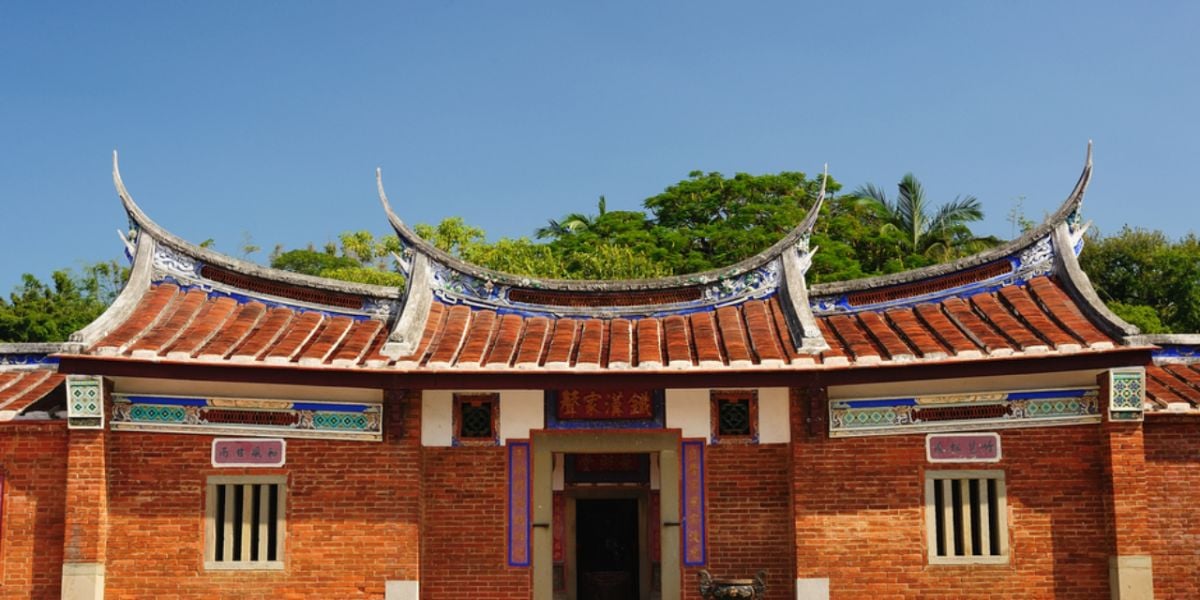
Taiwan can be a challenging place to find affordable and suitable accommodation, being a densely populated country. However, with a little research and some insider knowledge, you can find a home that fits your needs and budget. In this article, we will provide you with information on the different housing options available and tips and advice on finding accommodation in Taiwan, including the best websites and resources to use, and common rental conditions.
Types of accommodation available in Taiwan
For long-term stays in Taiwan, there are hostels in major cities like Taipei and Kaohsiung that offer month-to-month deals. Most of these options have private rooms and shared bathrooms. They usually cost around NT$ 10,000-15,000 per month and do not require a deposit.
Airbnb is technically illegal in Taiwan, but there are still plenty of apartments available through the website. For some of the listings, you may be able to negotiate a monthly rate without the need to pay a deposit.
Rent prices in Taiwan
Studios and multi-room apartments
Rent in Taiwan varies widely, depending on which city one lives in and whether one chooses to rent an entire apartment or house or just a single room within a shared apartment or co-living space. As is the case with real estate anywhere in the world, location is also a major factor.
In the capital, Taipei City, studio apartments or one-bedroom apartments consisting of a single room with a bathroom, kitchenette, and a small balcony can be found for approximately NT$ 15,000, on average, though this amount will be higher in new buildings, and higher still the closer one gets to the city center. For each additional bedroom, the cost goes up from NT$ 5,000 to NT$ 10,000.
Single rooms
In terms of renting a single room in a shared apartment or co-living space in Taiwan, costs again vary in relation to the location within a city, the size of the apartment, and the age of the building.
Using Taipei City and the larger metro area as a yardstick, single rooms range from NT$ 6,000 at the lowest end of the sale, on the outskirts of New Taipei City and in more industrial areas. Such rooms will be very small, very basic, and may be in units subdivided into very small sub-units. In the city center, master bedrooms in relatively new buildings, with nice amenities, an ensuite bathroom, and even their own balcony, can be more or less equal to or even more costly than renting a studio, ranging anywhere from NT$ 15,000 to NT$ 20,000.
Rent prices outside Taipei
Rent outside of Taipei can be significantly cheaper. In Taichung, rents generally run at about three-quarters of Taipei prices. Kaohsiung can be even cheaper, the prices about two-thirds of Taipei levels. In sparsely populated areas, such as Taiwan's east coast, it is possible to rent an entire multi-story house for roughly the same cost, or even cheaper, of renting an apartment in any of Taiwan's major cities. This is an attractive option for digital nomads or those who are otherwise location independent, as job opportunities for foreigners in small towns in Taiwan are usually limited to teaching English unless one is able to run a business of their own there.
House hunting in Taiwan
Facebook groups for rentals
For those who do not speak or read Mandarin, the best bet for finding a long-term apartment in Taiwan is Facebook. There are various groups with posts about apartments around Taipei and the rest of Taiwan. Some of the posts also advertise flatsharing.
In general, an older two-bedroom apartment will cost about NT$ 20,000 per month in Taipei. A newer one-bedroom or studio will be about the same. Newer apartment buildings will cost a premium. Expect to pay a two-month deposit in cash when you sign the lease. This can be a hassle if you're using a foreign ATM card, as there are daily limits on withdrawals.
The easiest way to find an apartment or flatmate in Taiwan is through Facebook. There are multiple groups dedicated to helping foreigners find accommodation; however, the groups are sometimes full of spammers and agents. Also, most of the landlords who post in the groups charge more than the market rate. There is a greater possibility of finding a short-term apartment on Facebook rather than a long-term one, as some people are flexible and will sublet.
Housing websites
If you possess Mandarin language skills, you can go to rental websites and browse the listings. However, you should be aware that some landlords in Taiwan will not rent to foreigners and may make up excuses to avoid renting out the listing.
The bigger websites to look through are 519, Housefun, or Sinyi. The first one has more listings than the other two, which are affiliated with real estate agencies.
You may encounter some shocking photos in some listings as some landlords do not clean the apartments after tenants move out. There is no law stating that they must clean the apartment. However, some landlords may tell you to clean the apartment before moving out and threaten to not return your deposit if you don't clean it. For the most part, if the apartment is superficially clean, the landlord won't complain.
Useful links:
Other costs to consider when renting accommodation in Taiwan
General cost of living
The cost of living in Taiwan heavily depends on what sort of lifestyle one wants to lead and where one chooses to live in Taiwan.
If you are the type of person who generally stays in, doesn't go to bars or clubs often, cooks at home, can stand living in shared accommodation, and partakes in forms of entertainment, such as hiking, cycling, or other outdoorsy, athletic pursuits, the cost of living is relatively cheap, compared to other major metropolises throughout the world.
If you are the type of expatriate who prefers dining out, craves Western cuisine rather than cheaper Taiwanese fare, regularly goes to bars or clubs, and doesn't want roommates, the cost of living will be exponentially higher.
In 2022, Taipei did creep into the top 20 most expensive cities for expats, according to data and services company ECA International. This list takes into account the average cost of consumer goods and services coupled with the cost of rent.
Utilities
The cost of utilities in Taiwan is affordable, but rates may vary depending on one's landlord. There are laws in place to protect tenants from being charged more than the official rates for water, gas, and electricity. Still, some landlords will try to charge more, particularly when they believe that an expat may be unaware of what utilities cost.
Water
At present, residents in Taiwan pay just NT$ 11 for every ton of water they consume. This places the cost of water in Taiwan at roughly one-fourth of that in the U.S. and one-sixth of the cost in the U.K.
In 2023, a new tariff was introduced, called a water consumption fee, to encourage large water users to scale back. During the dry season, from November to April, those who consume more than 9,000 cubic meters of water will be charged an additional water tariff of NT$ 3 per cubic meter. This amount can be reduced to NT$ 2 or NT$ 1 if a certain percentage of water consumed is from renewable sources.
Electricity
The average rate for electricity in Taiwan is roughly NT$2.8 per kilowatt hour. In 2023, the state-run utility TaiPower Co. announced measures similar to those regarding high water consumption to raise rates for high electricity consumers. Under these measures, households that consume more than 700-kilowatt hours per month would see their electricity bill rise three percent, while those consuming over 1,000 kilowatt hours per month would see their bill rise ten percent.
Good to know:
Be aware that some landlords advertise electricity charges of up to NT$ 5 per kilowatt hour. This is illegal and yet still somewhat commonly practiced.
Gas
Natural Gas is provided to TaiPower by the state-owned oil refinery China Petroleum Corp. The purchase price of natural gas is higher than the sales price, meaning that the cost is subsidized for Taiwan's residents by these government enterprises. As such, monthly gas costs for those apartments hooked up to the gas grid are generally quite cheap, coming in at approximately NT$ 250 per person.
Can foreigners buy property in Taiwan?
Reciprocity agreements
The short answer is, yes, a foreigner can legally buy a house in Taiwan, as long as their own country has a reciprocal agreement with Taiwan, allowing Taiwanese citizens to purchase property there.
The long answer, however, is a bit more complicated than that. For example, in the case of the United States, reciprocity agreements may vary from state to state. So, where you are from in the U.S. may impinge on your ability to buy property in Taiwan. Before you go house hunting in Taiwan, make sure the place you are from has a reciprocity agreement in place.
Obtaining financing
This brings us to the next hurdle: getting a bank loan in Taiwan. In order to get a mortgage from a Taiwanese bank, you will likely have to be legally employed in Taiwan. Once you have employment, you will have an account with a local bank, which will remit your monthly salary. The bank that remits your salary will be your best bet for obtaining a mortgage. Taiwan lacks a credit score system similar to those in place in North America, so mortgage terms are largely dictated by one's salary, one's debts, and one's tax statements. Every bank has its own policies and interest rates when it comes to dealing with foreigners, so it can pay to shop around.
Down payments and interest rates
Down payment percentages in Taiwan, relative to Western countries, are quite high. For houses that are older than 35 years, the down payment can be higher than 20 percent. For houses 35 years old or less, that number can dip below 20 percent.
Interest rates vary from 1.3 percent to 1.5 percent for a first-time homebuyer. For purchasing a secondary residence, third, and so on, the interest rate can climb up to a maximum of about 1.8 percent.
Taxes and fees
There are numerous taxes and fees associated with becoming a homeowner in Taiwan. These include, but are not limited to, the following:
Deed Tax: Six percent of the overall value of the building, as assessed by the local authorities. This amount is paid by the buyer on signing the contract to buy the house.
Stamp Tax: This is 0.1 percent of the total amount listed on the purchase contract. Half the amount is paid by the buyer and half by the seller.
House Tax: This is an annual tax of 1.2 percent of the value of the house, based on an annual assessment.
Real Estate Agent Fee: Anywhere from one to two percent is paid by the buyer, and three to eight percent is paid by the seller.
Change of Ownership Fee: This can range from NT$ 20,000 to NT$ 50,000.
Parking Space Fee: In Taipei City, the price of a parking space is no minor expense. Parking is limited, and ownership of a space can go for well over NT$ 1 million. Parking spaces in Taipei can be rented for anywhere from NT$ 3,000 to NT$ 5,000 per month. This gets cheaper the further south one goes in the country.
Why is property in Taiwan so expensive?
While rents remain somewhat affordable in Taiwan, relative to other major global centers such as New York or London, the price of purchasing a home in the capital, at least, is among the highest in the world.
Why?
One major issue is the lack of land. Taipei is just 270 square kilometers in area. So, it is difficult to find space for new projects, and affordable government housing projects make up a very small percentage of the city's new developments.
Another reason is the low inheritance tax. In 2009, Taiwan cut the inheritance tax to ten percent, down from 50 percent. This made it highly lucrative for high-net-worth people who have made their money outside of Taiwan to park their money in Taiwanese real estate. A glut of buyers in the luxury sector continues to push home ownership out of the grasp of ordinary working people in Taiwan, as wages have largely remained stagnant for the past two decades, while the overall cost of living has climbed steadily higher due to inflation.
We do our best to provide accurate and up to date information. However, if you have noticed any inaccuracies in this article, please let us know in the comments section below.








